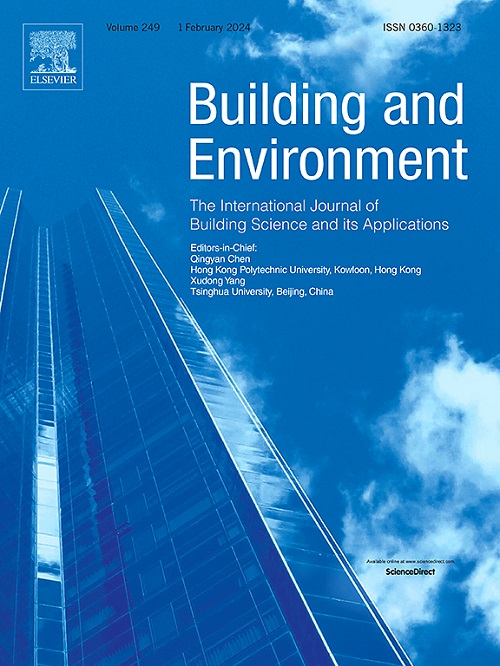Spatial heterogeneity in effects of horizontal and vertical environmental features of blocks on land surface temperature: A case study of Shenzhen, China
IF 7.1
1区 工程技术
Q1 CONSTRUCTION & BUILDING TECHNOLOGY
引用次数: 0
Abstract
Changes in land surface temperature (LST) can be triggered by both horizontal expansion and vertical growth due to urbanization. A limitation of previous studies is that they have neglected to consider vertical environmental factors and have instead focused on the influence of horizontal features (e.g. land cover composition) on LST. In this regard, this study takes the block space of Shenzhen, a typical high-density city in China, as the basic unit of analysis. A multivariate dataset including panoramic street view images and building footprints is used to extract an indicator system that comprehensively characterizes the horizontal and vertical features of the block. The effects of each feature on LST and its spatial heterogeneity are analyzed using the ordinary least squares (OLS) regression and two local regression models. The results indicate that the two local regression models demonstrate superior performance in explaining LST, particularly the multi-scale geographically weighted regression (MGWR) model (R² = 0.848). In addition to horizontal factors such as percentage cover of forest (PC_for) and plan area building density (), the frontal area index () and the sky view factor (SVF) in the vertical class of features also had a significant effect on LST. In addition, the majority of horizontal and vertical environmental features demonstrated spatial heterogeneity in their effects on LST. The study provides a scientific basis for differentially regulating block environmental features to mitigate the UHI, particularly in high-density cities.
求助全文
约1分钟内获得全文
求助全文
来源期刊

Building and Environment
工程技术-工程:环境
CiteScore
12.50
自引率
23.00%
发文量
1130
审稿时长
27 days
期刊介绍:
Building and Environment, an international journal, is dedicated to publishing original research papers, comprehensive review articles, editorials, and short communications in the fields of building science, urban physics, and human interaction with the indoor and outdoor built environment. The journal emphasizes innovative technologies and knowledge verified through measurement and analysis. It covers environmental performance across various spatial scales, from cities and communities to buildings and systems, fostering collaborative, multi-disciplinary research with broader significance.
 求助内容:
求助内容: 应助结果提醒方式:
应助结果提醒方式:


